Random Live Reading of Recent Books I Like #5
Shit be over but I read from a bunch of books:
Everyone Loves You When You’re Dead by Neil Strauss [It Books]
Cop Kisser by Steven Zultanski [Bookthug]
Entrance to a colonial pageant… by Johannes Göransson [Tarpaulin Sky]
“CEOs” from No Colony 003 by Krammer Abrahams
Today and Tomorrow by Ofelia Hunt [Magic Helicopter]
The Angel in the Dream of Our Hangover by Mark Leidner [Sator Press]
Someday This Will Be Funny by Lynne Tillman [Cursor]
The Buddhist by Dodie Bellamy [Publication Studio]
The Marbled Swarm by Dennis Cooper [Harper Perennial]
Girl Without Arms by Brandon Shimoda [Black Ocean]
Then Reynard challenged me to read all of Vanessa Place’s Dies: A Sentence, so I did. It took five hours. Reynard left in the middle.
21 bottled ducks
1.
21.
httpv://www.youtube.com/watch?v=LSnp9rYb7zE
4. The first issue of Stoked is here! Amber Sparks, Brian Oliu, Daniel Bailey, J.A. Tyler, Mike Young, Ryan Ridge, and Sarah Carson, as well as reprinting of stories by Roxane Gay (originally published in Gargoyle 56) and Matt Bell (originally in Drexel Online Journal). Hey now!
22. The number played in roulette, Casablanca.
14. LSU Press drops a new Hemingway craft book.
Art Matters shows exactly how Hemingway’s craft functions and argues persuasively for the importance of studies of articulated technique to any meaningful understanding of fiction and literary history.
I have the urge to read this book. And also to vomit. I might go ahead and do both.
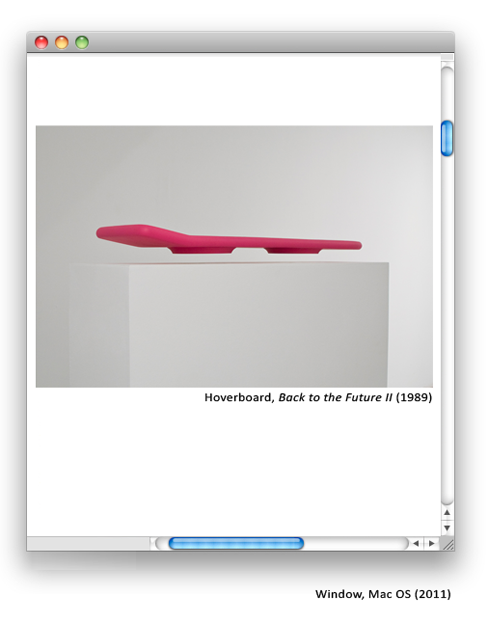
Excerpt Hover, Htmlgiant (2011)
It’s funny how much shadows are glorified under hovering windows, the subtle gradation from dark to light, as if we were the sun casting these shadows from God’s eye view. Rembrandt and Caravaggio spent a lot of time with chiaroscuro, moving across their subject’s face from dark to light. An imaginary sphere will always be rendered in pencil with its shadow, for the surface upon which light falls is the same tone as the the paper, an argument that light is white despite the jaundiced yellow of the sun. I always found the future really sad in Back to the Future II, like I would be fine if I fell out of a tree and into a girl’s room, just stayed in the 80s, when Huey Lewis was still news, and nothing except the air guitar move where you jump floated.
Boyfriend pillow

Be careful in the cache of artistic enterprise, you just might trip over something, which is not what artist Robert Gober, his surrogate-phallic foot pictured left, was thinking, or maybe it was, or maybe thinking is our way of running away from the void, which, in better days, was known as truth, before the post-fuckturalists got to it; or maybe we’re near the end of something, the one unknowable something that we know currently, the one where a search query for boyfriend pillow yields a pillow with a bisected fisting hole, because falling asleep alone or beside someone has never been so complicated, with our television-seared synapses and tiny odes to nature in loops of waterfalls and forest rain inside white noise sleep machines plugged into a wall with an alien black cord to teach us the forgotten narrative of who we were. SkyMall is mankind’s way of saying we’d rather look at shit conceived by schizophrenics than learn, via a group of racially diverse cartoons calmly dying, how to stay alive a little longer before the plane crashes. And of course you can’t say “plane crashes” in today’s cultural environment without invoking that historical moment comprised of a hundred frozen moments from different angles whose aggregate faux 360º view is stricken in the minds of all, the number of the perished paltry compared to what god did on his better days.
Interview of a Librarian
Last week I had a slight buzz and randomly phoned 10 public libraries in 10 random states and asked to talk to a librarian. I asked the librarian if they would give me an email interview. Two hung up directly after the question. One woman coughed, and I heard her ask someone a question, and then she hung up. One said, “Quit calling me, Steven.” My name is not Steven. Six graciously said yes, and gave me their email addresses. Then, of the six, only one responded in full to the email interview questions. I have no idea why. These answers are from B. David. He manages a library in Mississippi.
The library seems to be one of the last places in America where no one tries to sell you anything. You can just hang out. Do you have an opinion on the library as a public space?
Absolutely. One of the great things about the library is that it is a place you can go and your privacy is yours. You can read what you want, learn about what you want, talk about what you want and know that your freedoms are not being tampered with. We hold these kind of rights pretty high. One thing that really scared the bejesus out of us library’s was the Patriot Act. The Patriot Act was basically trying to compel libraries to give up information about their patrons while at the same time preventing us from telling the patrons that this was going on. The libraries countered by deleting all patrons loan records so that there was nothing there for the government to look at. What does this have to do with public space? A public space is just that: a place where the public can gather and express their mind and their views. Most libraries come equipped with meeting rooms for this exact reason. Unless you are trying to sell something, or hold a closed meeting, we will allow most anyone to come in and use our room to peddle their silly views.
Does your library have a glory hole?
“Cape” by Kim Chinquee
 Last night, I dreamed that I was in a clearing in a forest, and my wife was below me, yelling that I should fly higher to avoid danger. It was nighttime, there were some stars. I felt scared as I rose, but then I felt very happy, because my wife joined me over the forest, and we escaped along the mountain ridges.
Last night, I dreamed that I was in a clearing in a forest, and my wife was below me, yelling that I should fly higher to avoid danger. It was nighttime, there were some stars. I felt scared as I rose, but then I felt very happy, because my wife joined me over the forest, and we escaped along the mountain ridges.
It is a dream I have not had in so long. It is the kind of dream that I’ve missed having, one that I had so many times before when I was a young boy. Most of you have probably had this dream as well: the flying dream. Yes, when I was little, I often dreamed that I could fly. In my dream, I floated out of my room, down the stairs to the landing at the front door of our house, and outside.
“Tlön, Uqbar, Orbis Tertius” Jorge Luis Borges
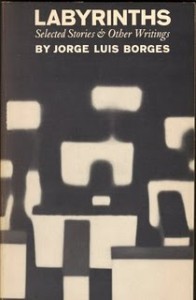 In my last post, I casually mentioned that when I first read The Age of Wire and String, I wasn’t very familiar with the precursors that had ‘made it possible’ as a book. Of course, I’m not sure exactly what earlier books helped Marcus write it, nor do I really know what it means to really ‘make a book possible.’ Instead, I think I meant that I hadn’t yet read writing that gave me a way of better appreciating The Age of Wire and String. My first reading of that book was really exciting, but difficult; I felt lost quite a lot through that book the first time. I felt that the book was isolated–and isolated me–when I first read it, but now that I’ve read some other stories and books, I think I feel comfortable putting it in a group of others that I feel do similar things to me as I read.
In my last post, I casually mentioned that when I first read The Age of Wire and String, I wasn’t very familiar with the precursors that had ‘made it possible’ as a book. Of course, I’m not sure exactly what earlier books helped Marcus write it, nor do I really know what it means to really ‘make a book possible.’ Instead, I think I meant that I hadn’t yet read writing that gave me a way of better appreciating The Age of Wire and String. My first reading of that book was really exciting, but difficult; I felt lost quite a lot through that book the first time. I felt that the book was isolated–and isolated me–when I first read it, but now that I’ve read some other stories and books, I think I feel comfortable putting it in a group of others that I feel do similar things to me as I read.
“Tlön, Uqbar, Orbis Tertius” is one of those stories that, for me, connects to The Age of Wire and String in a meaningful way. As I’ve mentioned before in some of these other posts, I had previously thought of stories as ABC tales of one character or another’s plights, such as “The Secret Life of Walter Mitty,” “To Build a Fire,” “The Most Dangerous Game,” etc., this next stage in my reading began to tune me into how words might be used for other purposes: world-building, for example.
Two years before I had discovered, in a volume of a certain pirated encyclopedia, a superficial description of a nonexistent country; now chance afforded me something more precious and arduous. Now I held in my hands a vast methodical fragment of an unknown planet’s entire history, with its architecture and its playing cards, with the dread of its mythologies and the murmur of its languages, with its emperors and its seas, with its minerals and its birds and its fish, with its algebra and its fire, with its theological and metaphysical controversy. And all of it articulated, coherent, with no visible doctrinal intent or tone of parody.

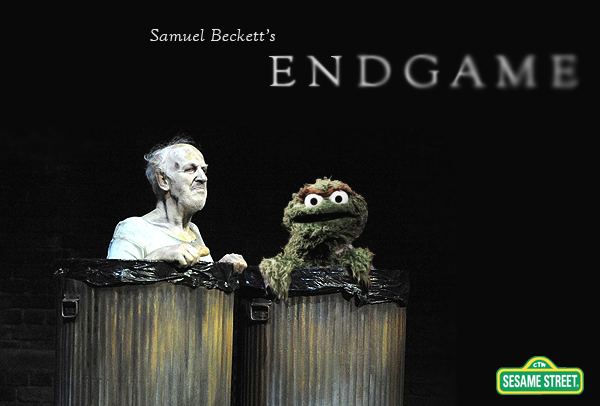
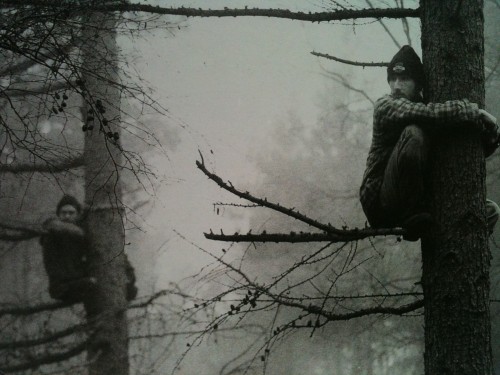
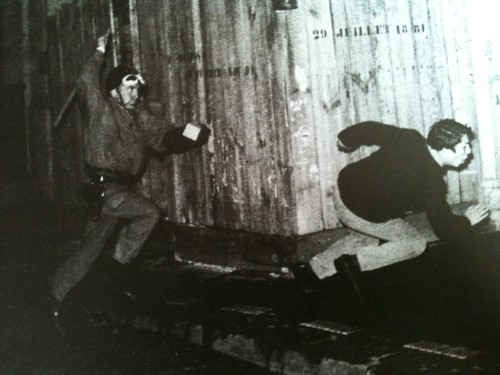
Flag Burn Attempt I Suppose I Guess
I read this article and watched this video and oddly did not think of the flag as symbol vs. flag as sacred, or really the entire flag desecration debate, or even a debate on the words, “Congress shall make no law abridging freedom of speech.” No, none of that was really running through my head. Why did I re-watch? Why did I find it intriguing?
May 13th, 2011 / 8:39 am